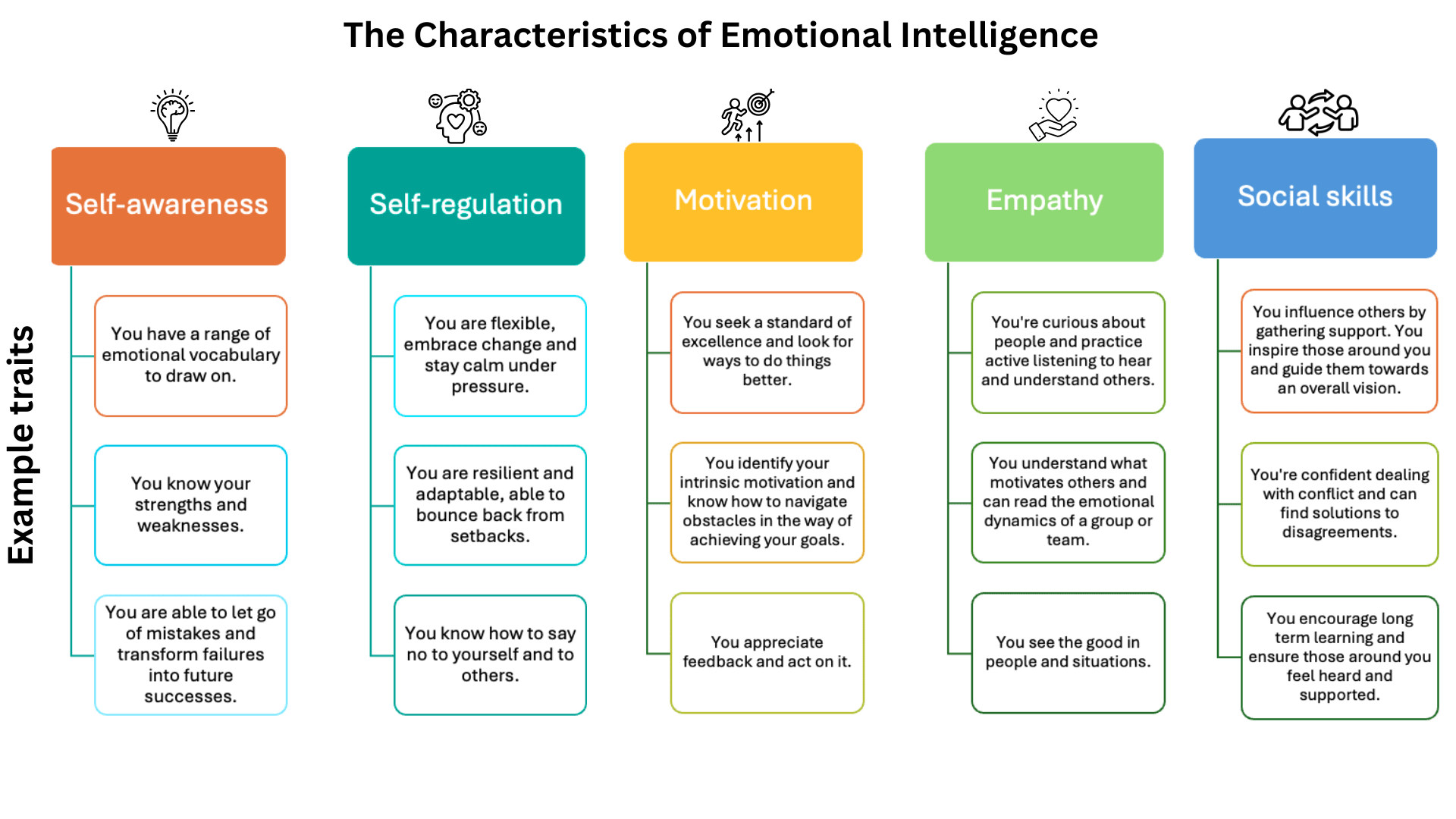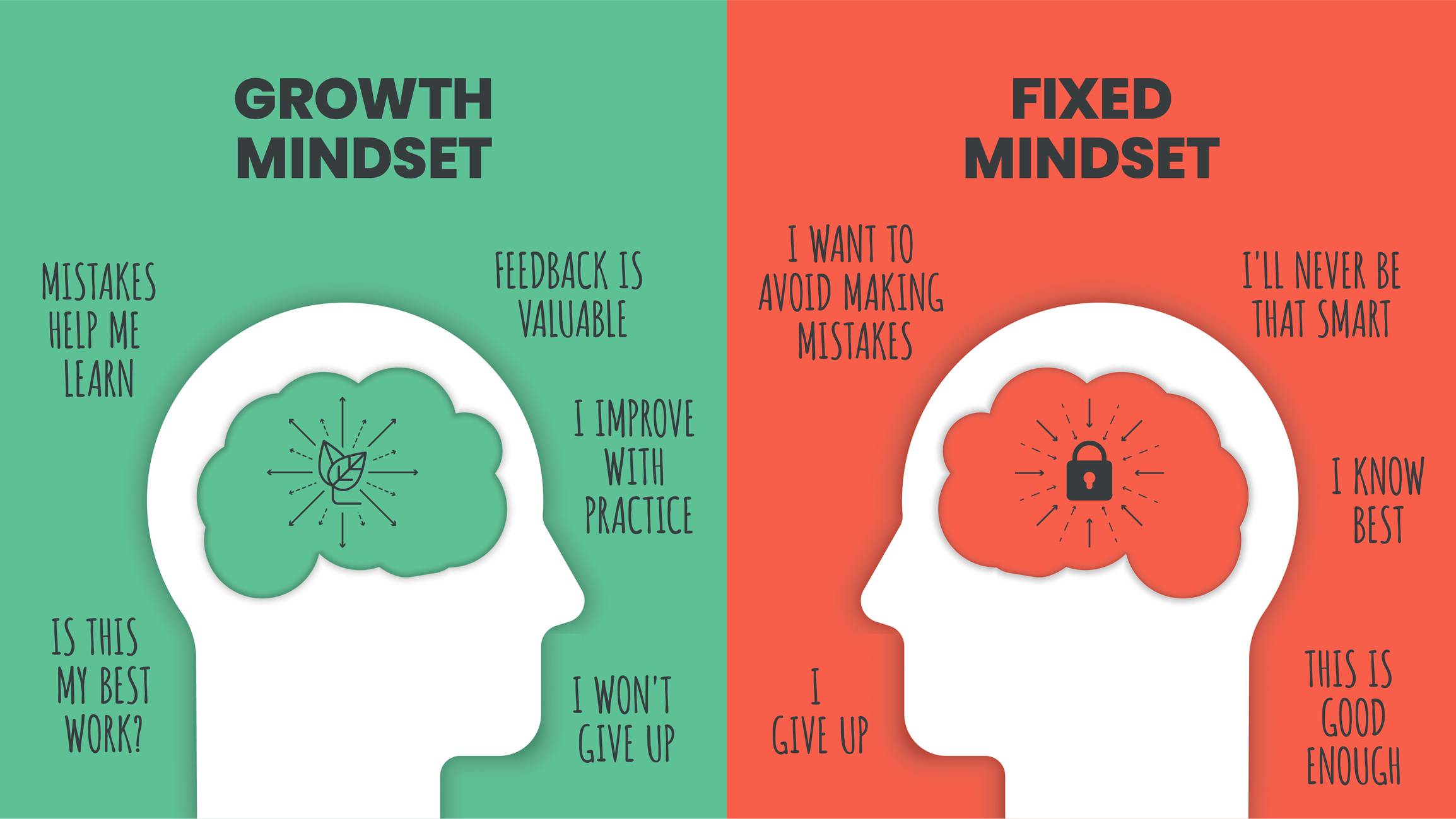Emotional intelligence (EQ) is the ability to recognise, understand, and manage your own emotions while also navigating the emotions of those around you.
From diffusing conflicts to leading with empathy, emotional intelligence fuels better communication, collaboration, and resilience in the workplace. Organisations increasingly recognise that high EQ fosters a positive work culture, where teamwork and communication thrive, ultimately enhancing overall productivity and job satisfaction.
Research by Travis Bradberry, co-author of Emotional Intelligence 2.0, suggests that 90% of top performers exhibit high emotional intelligence. Why? Because they know how to manage their own emotions and respond to others in a way that cultivates trust and productivity.
Mastering emotional intelligence enables you to navigate challenging situations, communicate empathetically, make sound decisions, manage stress, and build healthier relationships.
There are five characteristics of emotional intelligence: Self-awareness, self-regulation, motivation, empathy, and social skills. Take a look at the diagram below to explore some of the traits of each characteristic:

The Characteristics of Emotional Intelligence:
Emotional intelligence is not fixed – it can be developed with practice to progress in your career. If you are interested in improving your emotional intelligence skills, use these reflection questions and suggestions to assess and strengthen your EQ in daily life:
Self-Awareness
The ability to recognise and understand your emotions and how they affect your thoughts and behaviour.
Example: You realise that a stressful morning is making you short-tempered in meetings, so you take a moment to reset.
Reflection question: Do I notice how my emotions influence my decisions and interactions?
Developing the skills:
Pay attention to how you’re feeling and how your emotions influence how you respond to making decisions or interacting with others. Pause before reacting in emotionally charged situations. Be aware of your strengths and acknowledge your weaknesses, for example being honest about what you need to work on to succeed.
Self-Regulation
The ability to manage emotions, stay in control, and adapt to changing circumstances. Staying calm under pressure and recovering quickly from setbacks.
Example: Instead of reacting angrily to a critical email, you pause, reflect, and respond professionally.
Reflection question: Do I stay calm under pressure and adjust my approach when things don’t go as planned?
Developing the skills:
Accept that there will be challenges and try to understand the context of the situation, adjusting your strategy or approach accordingly. Seek feedback from others and look for ways to do things better. Find ways to release workplace stress such as pursuing hobbies.
Motivation
An internal drive to achieve goals with passion and persistence. The ability to take on new challenges and not give up in the face of obstacles.
Example: Despite a project setback, you stay focused and find creative ways to achieve your objective.
Reflection question: Do I set meaningful goals and remain committed even when challenges arise?
Developing the skills:
Set clear personal and professional goals. Remind yourself of your long-term vision and celebrate the small achievements you make along the way.
Empathy
The ability to understand and share the emotions of others. In the workplace, empathy allows you to understand the different dynamics between colleagues and supervisors.
Example: You notice a colleague is struggling, so you offer support rather than just focusing on completing your own tasks.
Reflection question: Do I actively listen and consider others’ emotions before responding?
Developing the skills:
Practice active listening by summarising what others say before responding. Show genuine curiosity about people’s feelings, ask open-ended questions, and seek to understand different perspectives.
Social Skills
The ability to manage relationships, communicate effectively, and navigate social situations. Being able to understand the dynamics of a group or organisation and motivate and inspire others.
Example: When two team members are in conflict, you mediate by helping them understand each other’s perspectives.
Reflection question: Do I communicate clearly, build positive relationships, and resolve conflicts constructively?
Developing the skills:
Bring disputes out into the open and deal with disagreements. Guide and inspire others towards the overall vision for your team or organisation.
The journey toward developing emotional intelligence is continuous and requires self-reflection, practice, and a willingness to grow. By prioritising self-awareness and actively working on emotional regulation, empathy, and social skills, you can create positive changes which lead to more meaningful connections, improved communication, and a greater sense of purpose.
Embracing emotional intelligence empowers you to thrive in an ever-evolving world. As we cultivate our EQ, we unlock the potential to build healthier relationships make sound decisions, and lead fulfilling lives. In a landscape where emotional intelligence is increasingly recognised as a key differentiator for success, investing in its development is a powerful step toward a brighter future.
Susan David is the author of Emotional Agility: Get Unstuck, Embrace Change, and Thrive in Work and Life and in her TED talk she explores how the way we deal with our emotions shapes everything that matters: our actions, careers, relationships, health and happiness.










